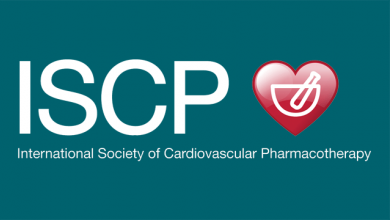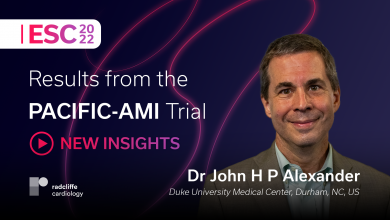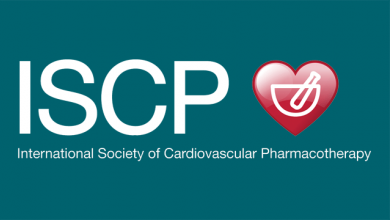Search results
Author(s):
David Antoniucci
Added:
3 years ago
In the setting of acute myocardial infarction (AMI), spontaneous and percutaneous coronary intervention (PCI)-related embolisation results in a decreased efficacy of mechanical reperfusion and myocardial salvage. Direct stenting without predilation may decrease embolisation and the incidence of the no-reflow phenomenon.1,2 More specific approaches to the problem of microvessel embolisation during…
View more
Author(s):
S Othman Amen
,
Soza Tharwat Mohammed Baban
Added:
3 years ago
Background: Coronary artery disease (CAD) and its major manifestation acute MI (AMI) are the most common causes of death worldwide. Hyperhomocysteinemia (HHcy) has been recently recognised as a new emerging cardiovascular risk factor mediating in development of CAD risk. HHcy causes endothelial dysfunction, resulting in local thrombosis and subsequent ischaemia. However, the role of HHcy in…
View more
Abortion of Acute Myocardial Infarction - The Best Possible Achievement of Reperfusion Therapy
Author(s):
Roberto Sciagrà
Added:
3 years ago
Article
Author(s):
Miriam Reiter
,
Tobias Reichlin
,
Raphael Twerenbold
,
et al
Added:
3 years ago
Acute myocardial infarction (AMI) is a major cause of morbidity and mortality worldwide. Accordingly, prompt identification of patients with AMI is critical, as established therapies exist that are of proven benefit.1,2 More than 15 million patients per year present to emergency departments with symptoms compatible with acute myocardial ischaemia in the US and Europe; only 20–30%, however, are…
View more
Author(s):
Robin Hofmann
Added:
6 years ago
This interview with Robin Hofmann from Karolinska Institutet, Stockholm, SE discusses Determination of the Role of Oxygen in Suspected Acute Myocardial Infarction (DETOX) at ESC 2017.
Filmed by Radcliffe Cardiology on-site .
View more
Author(s):
John Alexander
Added:
1 year ago
ESC Congress 22 — Dr John HP Alexander (Duke University Medical Center, US) joins us to share the latest data from the PACIFIC-AMI trial (NCT04304534).
This multicenter, randomized, placebo-controlled, double-blind and dose-finding phase 2 study assessed the efficacy and safety of asundexian (Bayer), an oral FXIa inhibitor on top of a dual antiplatelet therapy (ASA + P2Y12 inhibitor) in…
View more
Author(s):
Ronald K Binder
,
Ahmed A Khattab
Added:
3 years ago
The treatment of acute myocardial infarction (AMI) has substantially improved in recent decades. Thrombolysis, the former first-line therapy, which is inexpensive and may be administered without noteworthy delay in primary care or pre-hospital settings, has been replaced by primary percutaneous coronary intervention (PCI) despite the inherent delay of transfering patients to a cardiac…
View more
Clinical Application of a Novel Self-expanding Coronary Stent in Acute Myocardial Infarction
Author(s):
Christian Spaulding
Added:
3 years ago
Article
CCS-AMI: New Classification for Acute MI with Dr Kumar
Author(s):
Ankur Kalra
,
Andreas Kumar
Added:
5 months ago
Podcast Episode
Author(s):
S Othman Amen
,
Soza Tharwat Mohammed Baban
Added:
3 years ago
Background: Globally, coronary artery disease (CAD) and its complications, such as acute myocardial infarction (AMI), are the leading cause of morbidity and mortality. Vitamin D deficiency is a prevalent condition and it is emerging as a new risk factor for CAD. However, the correlation between vitamin deficiency and an increased risk of developing cardiovascular disease remains elusive.
Aim: To…
View more














